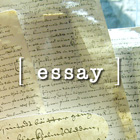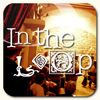
|
|||||||
FEAR ENDANGERS BY DECEIVING
THE FALSE PROMISE OF CONVENIENCE OR ESCAPE TEMPTS US TO BE AFRAID & INFLAMES TENSIONS 27 July 2006 The fear and uneasiness that provokes human beings to conflict is never what it seems to be; that is its nature and its method: to take hold by way of complex deceptions. Fear wages a coup d'esprit by deceiving the mind into thinking it promises clarity and intellectual comfort, peace of mind, justice and the healing of wounds, that it may actually generate the only feasible path to physical or political safety. [Full Story] SCIENCE ABOVE TECHNOCRACY, FOR A FULLER FUTURE Science is in many ways an artform, but it is specifically and most importantly, the art of knowledge. It is not philosophy, not a study of how knowledge comes about, what it is, whether it can be trusted or whether we need to adjust our thinking; it is, instead, a direct study of the natural world, its tendencies, its evidence, and its capacity to work with us, for us and around us. [Full Story] OUR COLLECTIVE STUDY OF THE UNIVERSE People want to believe what their friends, neighbors, teachers, political representatives tell them. They will express skepticism, and they will be brash and indignant about public scandals or about dubious claims, but ultimately, they err on the side of credulity. The human being in society, is able to suspend disbelief and participate in sometimes elaborate fantasies, in the interests of sustaining the feeling of belonging to the ongoing project to understand the universe we inhabit... [Full Essay] EVERYONE THE WATCHER22 June 2004 With flashpoint confidence, and frequently, the opinion is put forth that in our information society, the public is largely detached from the activities of its government, as from the production of the information by which such scant contact is permitted. I would not discredit this assertion altogether, but rather would go beyond it, to use the impetus to the observation as a guide toward other, attached meditations. What is our role, as citizens? Are we detached, and if so, what can we do to make contact with the strings of power? We are all watchers. Not spectators, but witnesses who stand guard at the door to our liberty. It is not the information that descends upon us which determines the nature or degree of our independence; it is what we do with the information. Closing our eyes, using resignation as an excuse to shirk civic responsibility, amounts to locking ourselves in a dark corner, locking ourselves out of 'the blessings of liberty'. [Keep Reading] WHERE'S THE BEEF? When did journalism become an attempt to gauge the palate of the reader? When did newspapers and broadcasters begin using "readability" and "watchability" as keystones in the arc of their reporting? In the final analysis, it must be said that all artifice is artificial, and so all media are vulnerable to distraction, and to misrepresentation both of fact and of circumstance. Anything assembled or invented, conveyed through media of any kind, is a synthetic entity, and so survives by a breath of pretense and consent. The question that should be asked is whether our media culture has become hyper-synthetic, more interested in its own artifice than in the meaning it is capable of conveying. [Keep Reading] THE FREE PRESS The question which currently burns is whether consolidation among media sources is now threatening the independence of that vital democratic institution, the free press. For a number of reasons, consolidation leads to an atmosphere of institutional caution, which in turn leads to less willingness to question powerful interests, the government in particular, though these are the primary societal values of the function of the press... [Keep reading] SOUNDBITE THINKING If otherwise open societies fall into the pattern of dialogue through the logic of soundbite reckoning, there is a serious peril that much dialogue beyond the media will take on the same shallow level of examination and relevance. The trend of late has been to deliberately use the most inflammatory language possible in framing headlines and spreading soundbites, which gets people interested, but tends to provoke uninformed reactions instead of studied debate... [Keep Reading] REDUCED REASONING & FINANCIAL MYSTICISM The conflict is obvious: speculative trading markets contain only so much certainty, and the true motivation of a market shift is the sum of private thoughts driving millions of private trades, information which is totally unavailable to analysts, especially in the moment. [Keep Reading]
ESSAYS FROM THE Sound-bite Themepark TV-dinner A vibrant media culture, also known as a Free Press, is vital to the full and healthy functioning of a democracy. But in the zeal to push boundaries, much is being done to undermine both the value of the media and the value of language as the fundamental medium of free expression. Our media environment is flooded not only with the jargon of the experts and the specialists, but also with the jargon of the ignorant. The same media slant that makes corporate slogans into household proverbs also has the effect of deadening the expressive capacity of both individuals and the press itself. The endless caprice of the ever-expanding "advertising market" (the term now most commonly applied to what used to be our Free Press) has replaced the concept of a press designed to first serve the public interest by providing the service of information. The advertising-market media scheme instead embraces the paradigm of a ruthlessly competitive market system in which it is assumed by all that some mystical essence within market dynamics (regardless of concentrations of power) will automatically embrace and promote the First Amendment. This mystical essence (the mythic "invisible hand") thus is thought to keep important information flowing, increase transparency at all levels and serve the public interest. Clearly, it depends on context: in a society beset by tyrants, this appears to be the case, but in an established democracy, such forces can have the opposite effect, creating incentives for distortion and hyperbole. [Complete essay] Reading/Being We are what we read, or rather, what we take in, and what we are able to digest in full or in part. We are, beyond what is read, the extent to which we read the world. Our self depends almost entirely on our ability to make sense of information we encounter in the course of our existence. We are the extent to which we achieve a reading of the world that works and fosters new beauty and new readings. Media literacy is implied not only by the medium itself, but by the nature of the function of communications media in general. [Complete essay]
FROM THE THE REVOLUTION OF 1803 Jefferson’s vision of the American future has ever since provided the mythic master narrative of American history. In the western domains that Jefferson imagined as a kind of blank slate on which succeeding generations would inscribe the image of American nationhood, it would be all too easy to overlook other peoples and other possibilities. It would be all too easy as well to overlook the critical role of the state in the progress of settlement and development. When Americans looked back on events, they would confuse effects with causes: War and diplomacy eliminated rival empires and dispossessed native peoples; an activist federal state played a critical role in pacifying a “lawless” frontier by privatizing public lands and promoting economic development. In the mythic history of Jefferson’s West, an irresistible westward tide of settlement appears to be its own cause, the manifest destiny of nature’s nation. Yet if the reality of power remains submerged in Jefferson’s thought, it’s not at any great depth. The very idea of the nation implies enormous force, the power of a people enacting the will of “an overruling Providence.” In Jefferson’s Declaration of Independence, Americans claimed “the separate & equal station to which the laws of nature and of nature’s God entitle them.” The first law of nature, the great natural law proclaimed by writers of the day, was self-preservation, and the defining moment in American history was the great mobilization of American power to secure independence in the Revolution. President Jefferson’s vision of westward expansion projected that glorious struggle into the future and across the continent. It was a kind of permanent revolution, reenacting the nation’s beginnings in the multiplication of new, self-governing republican states. Born in war, Jefferson’s conception of an expanding union of free states constituted a peace plan for the New World. But until it was insulated from Europe’s “exterminating havoc,” the new nation would remain vulnerable, unable to realize its historic destiny. By eliminating the clear and present danger of a powerful French presence at the mouth of the Mississippi, the Louisiana Purchase guaranteed the survival of the Union—for the time being, at least. By opening the West to white American settlers, it all but guaranteed that subsequent generations would see their own history in Jefferson’s vision of their future, a mythic, nation-making vision yoking individual liberty and national power and promising a future of peace and security in a dangerous world. Two hundred years later, that vision remains compelling to many Americans. [Complete essay] |
|||||||
|
|||||||







